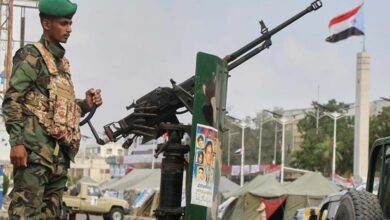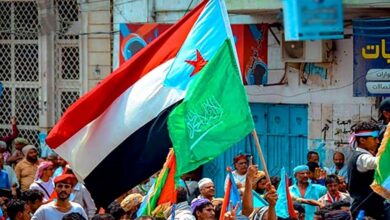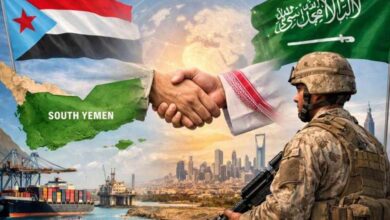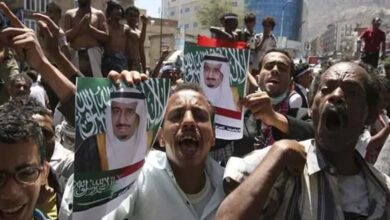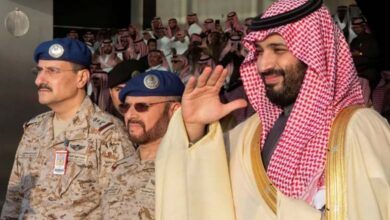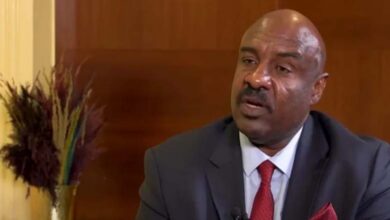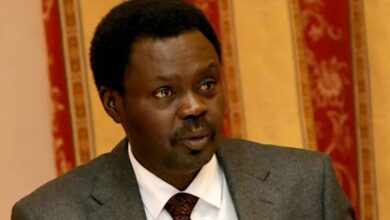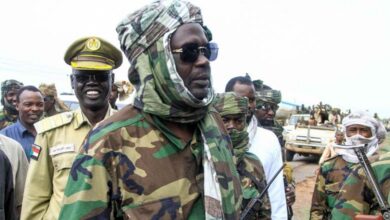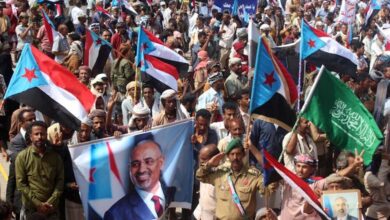Supporting human rights… UAE initiatives inspire the world
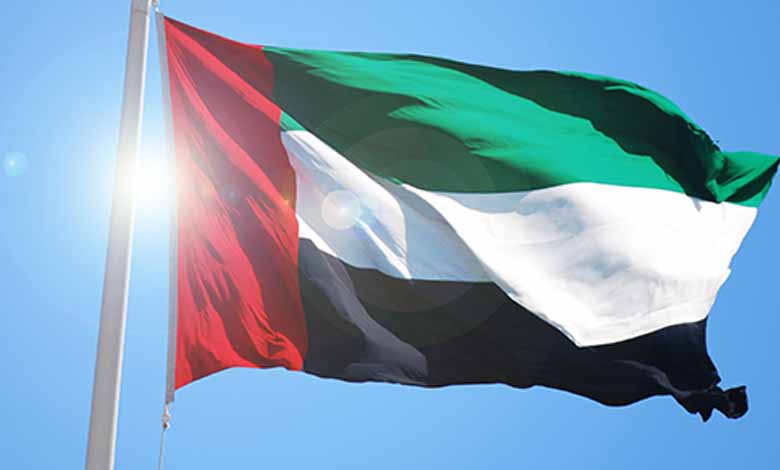
New praise for the leading efforts of the United Arab Emirates in supporting human rights on both national and international levels, as they celebrate impressive achievements and inspiring initiatives in this regard. The recognition came from a number of international experts in the field of human rights during a high-level seminar held on Tuesday evening via video communication technology from Geneva.
The occasion marked the launch of the Shadow Report on Human Rights in the UAE, in preparation for the official report that the UAE will present to the United Nations Human Rights Council in May of this year. The Shadow Report is prepared by non-governmental organizations as a response to the official report presented by each member state to the Council every four years.
Prior to the official report, which speaks of human rights in the country, official bodies wishing to do so present their own report on the development of this issue, known as the Shadow Report, the parallel report to the official report of the concerned countries.
More than 13 Arab, European, and international human rights organizations, along with 17 experts from around the world, participated in the preparation of this report, which is closest to an independent reading of the official paper that the UAE will soon present. The praise comes in conjunction with UAE achievements and initiatives that highlight the leading and inspiring efforts of the Gulf state in supporting human rights on both national and international levels.
Promoting Tolerance and Brotherhood…
The Ibrahimic Family House as a Model A crowning achievement of the UAE’s efforts to promote tolerance and human brotherhood, the Ibrahimic Family House was opened in Abu Dhabi on February 16, with a church, mosque, and synagogue.
The United Arab Emirates (UAE) is a country located in the Middle East, on the eastern coast of the Arabian Peninsula. The country is composed of seven emirates, or states, each of which is ruled by a hereditary emir or ruler. The seven emirates are Abu Dhabi, Dubai, Sharjah, Ajman, Umm Al Quwain, Ras Al Khaimah, and Fujairah.
This house embodies the UAE’s message to humanity about the importance of co-existence and brotherhood among all, regardless of religion, belief, language or nationality.
By opening this house, the UAE will have dedicated a cultural landmark, a center for dialog and understanding between religions, an inspiring space for education, a beacon of mutual understanding and co-existence among people of religions, a destination for learning, dialog and knowledge, and an oasis that brings together fellow humanity towards a future of peace, harmony and love.
These goals have been embodied by the UAE’s embrace of more than 200 nationalities who practice their beliefs freely in the country’s designated houses of worship, including churches for Christians, two Hindu temples, a synagogue, a Sikh temple and a Buddhist monastery.
There are 76 churches and houses of worship in the United Arab Emirates for various religions and faiths, some of which were donated land by the UAE for construction. Iraq reflects the values of tolerance, peaceful co-existence and freedom of belief in the country.
Women’s Rights: Local and International Achievements
The praise also coincided with the UAE hosting of the “World Summit for Women 2023” on Tuesday and Wednesday, which culminated in its pioneering efforts in advocating the rights of the world’s women.
The UAE is at the forefront of the countries of the world that support women’s rights at the international level through quality initiatives and programs aimed at supporting and empowering women, based on its pioneering local experience, which has become the subject of regional and international praise and appreciation.
The summit came days after a cabinet reshuffle took place on February 7th, raising the number of female ministers in the UAE to 10. Emirati women raised their participation in government to about 28%, continuing to occupy the top position in terms of Arab women’s participation in decision-making bodies and leadership positions.
The UAE is also achieving regional and Arab leadership in the Women’s Parliamentary Representation Index, following the late Sheik Khalifa bin Zayed Al Nahyan’s decision in 2019 to raise the female membership in the Federal National Council to “50%.”
Today, 50% of the members of the Federal National Council are women, which is the highest percentage in the history of parliamentary life in the United Arab Emirates, as well as in countries in the region and the world. This consolidates the UAE’s primacy in empowering women and strengthening their political participation and participation in the decision-making process.
Humanitarian Leadership: Turkey and Syria Earthquake
The praise also comes as the UAE continues its efforts to support and assist Turkey and Syria in alleviating the effects of the earthquake that struck the two countries on February 6th, embodying the highest form of solidarity and human brotherhood.
UAE President Sheik Mohammed Bin Zayed Al Nahyan has made it the leading nation in supporting the Turkish and Syrian peoples through efforts that have resulted in the largest amount of donations in the world to date, with more than $100 million. It is also the largest humanitarian bridge to date, 136 of which have been flown so far. It has carried 3,772 tons of relief aid and support is ongoing.
Climate change
A tribute also coincides with the UAE hosting at the end of this year the Conference of the Parties to the United Nations Framework Convention on Climate Change (COP28), which aims to address climate change, which threatens the full and effective enjoyment of a variety of human rights, including the right to life, and the right to water and sanitation.
Sustainability year
The praise also comes in the year of sustainability, after UAE President Sheikh Mohamed bin Zayed Al Nahyan declared 2023 the “Year of Sustainability” in the UAE, in an inspiring initiative that culminates his country’s pioneering efforts to promote sustainability locally and internationally and charts a road map for a better future for the world.
Sustainability means “meeting the needs of the present without compromising the ability of future generations to meet their own needs,” which embodies human fraternity in its highest sense by upholding the rights of future generations.
Inspiring experience
“Since its establishment, the UAE has prioritized the values of respect for human rights, drawing on its cultural heritage, its constitution that guarantees civil liberties for all, and its legislative system that promotes the principles of justice, equality and tolerance, respect for rights, and support for humanitarian and relief work in line with the principles of the Universal Declaration of Human Rights.”
These efforts culminated in the establishment of the National Human Rights Authority in August 2021, which was retained by the creation of a Ministry for Tolerance and the development of policies and laws to protect the rights of workers, children, women, senior citizens, employers and prisoners, as well as contributing at the regional and international levels to the promotion of human rights.
The UAE has not only supported human rights in the 51 years since its foundation, but also consolidated its commitment to them over the next 50 years, making it an eternal approach through the “50 Principles” document.
“As a culmination of its pioneering experience, in October 2021 the UAE won membership in the UN Human Rights Council for the period 2022-2024, an achievement that reflects the UAE’s international recognition and respect for its status, role, and human rights record.”
The UAE has served two consecutive terms as a member of the Human Rights Council for six years (2013-2018). The term of the members of the Council is three years, and they cannot be re-elected immediately after serving two consecutive terms.
During its time as a member, the UAE worked to support the Council’s agenda, particularly in the areas of women’s empowerment, children’s rights and the rights of stakeholders, as well as economic, cultural and social rights.
The United Arab Emirates has actively participated in the work of the Council to promote respect for human rights throughout the world.


